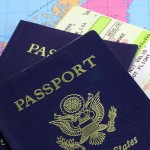If you choose to study abroad you need to carefully research and plan your trip. Studying abroad can be daunting, but with the right preparation it can be a wonderful experience.
We posted something a while back called ‘Tips for Students Studying Abroad’ and, since things change, we wanted to create an updated version to allow you to effectively plan your international studies.
Of course you will have a good idea of what subject you would like to study, and maybe where you want to study abroad. So, with this in mind, check out the local and national environment. Such as:
Local customs and traditions – what are they and can you abide by them?
Amenities – where are the closest stores?
Current political landscape – is the country stable politically?
Infrastructure – can you use a cell phone there?
Driving – are you allowed to drive?
Disability – does the infrastructure and amenities cater for people with disabilities?
Safety – what is the current crime rate?
It’s time to get prepared to study abroad. The first ‘official’ part of organizing your international studies is to apply for the relevant paperwork so you can enter the country where you’ll be studying abroad.
These will more likely be a passport, a visa and, if you’re heading by land or sea to another North American country such as Mexico, Canada, or the Caribbean, you’ll also need a passport card.
Applying for any documentation can take time, so it’s advised to allow 10 weeks before you receive your final passport in the mail. If you require a visa you may be able to apply online, via the countries embassy or even at the airport once you arrive at your destination.
Staying fit and healthy whilst you study abroad is essential. Not only will falling sick affect your international studies, but also foreign healthcare can be very expensive. So, it’s vital that you check your, or your parents, existing medical insurance to see if you are covered in your particular destination.
If you choose to study abroad you’ll be enjoying the local cuisine and immersing yourself in a new, exciting, culture. While it provides you with these amazing experiences, it can open up a host of possible diseases and other health risks. Remember the standards of which food and drink is prepared may not live up to the standards of which you are use to in the United States.
Depending on which country you’ve chosen to study abroad within may require you to receive a vaccination to protect you from illnesses that are present in other parts of the world. It’s just as important that you’ve kept up to date with your routine vaccinations too.
‘Be prepared’ the trusty Boy Scout motto, is a very apt saying here. Having to deal with an emergency when you’re home is difficult, imagine how difficult it could be if you’re the other side of the world?
Technology helps. Having an international cell phone, that acts exactly the same as a cell in the United States, goes someway to satisfy the ‘be prepared’ Boy Scout motto. If your current cell phone works, you’re cell operator may not cover the destination you plan to study abroad within – it’s worth checking out with them. However, getting an international SIM card may be easier and more cost efficient. Once you have organised a cell phone for your international studies, it’s very much entering a few of these emergency contact numbers, as well as all your family and friends.
The Smart Traveler Enrollment Program (STEP) is a free service provided by the U.S. Government to U.S. citizens who are traveling to, or living in, a foreign country. Ideal for those who plan to study abroad.
STEP allows you to enter information about your upcoming trip abroad so that the Department of State can better assist you in an emergency, during your international studies, or to get in touch following a family emergency back in the United States.
Millions of Americans travel abroad every year and encounter no difficulties. However, U.S. embassies and consulates assist nearly 200,000 Americans each year who are victims of crime, accident or illness, or whose family and friends need to contact them in an emergency. When an emergency happens, or if a natural disaster, terrorism, or civil unrest strikes during your foreign travel, the nearest U.S, embassy or consulate can be your source of assistance and information.
Here at Mobal, we help lots of international students every year stay in contact whilst they study abroad. If you are planning to study abroad, remember we can help you too. Just click here…>>








Pingback: Studying Abroad - Advice From Students - Mobal